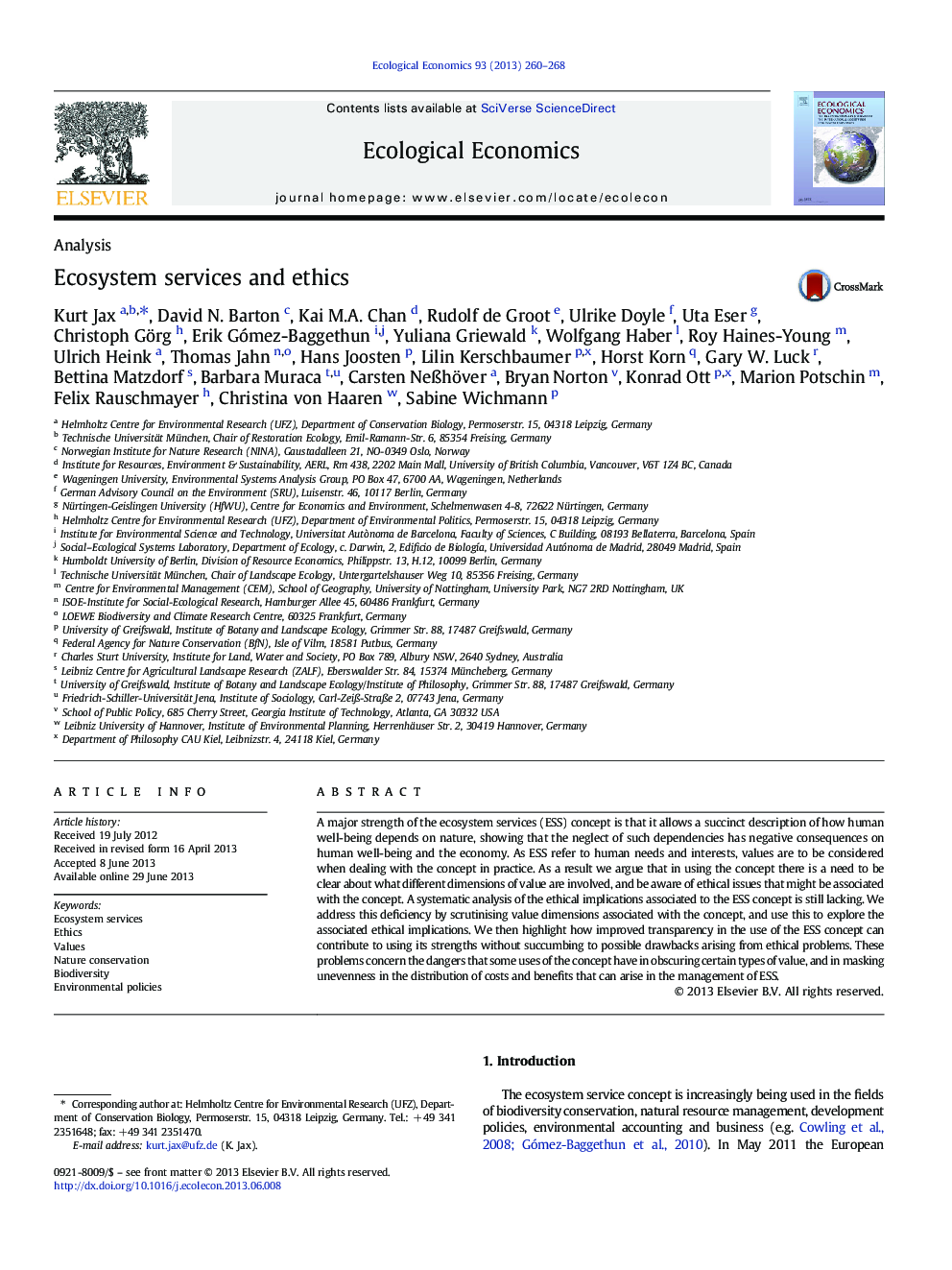| Article ID | Journal | Published Year | Pages | File Type |
|---|---|---|---|---|
| 5049956 | Ecological Economics | 2013 | 9 Pages |
â¢We scrutinise the value dimensions of the ecosystem services (ESS) concept.â¢We examine possible ethical implications of applying the ESS concept.â¢Simple juxtaposition of an economic vs. an ethical perspective is not useful.â¢Ethical implications of the ESS concept depend on context and purpose of its use.â¢Ethical problems can be attenuated by improving transparency and clarity.
A major strength of the ecosystem services (ESS) concept is that it allows a succinct description of how human well-being depends on nature, showing that the neglect of such dependencies has negative consequences on human well-being and the economy. As ESS refer to human needs and interests, values are to be considered when dealing with the concept in practice. As a result we argue that in using the concept there is a need to be clear about what different dimensions of value are involved, and be aware of ethical issues that might be associated with the concept. A systematic analysis of the ethical implications associated to the ESS concept is still lacking. We address this deficiency by scrutinising value dimensions associated with the concept, and use this to explore the associated ethical implications. We then highlight how improved transparency in the use of the ESS concept can contribute to using its strengths without succumbing to possible drawbacks arising from ethical problems. These problems concern the dangers that some uses of the concept have in obscuring certain types of value, and in masking unevenness in the distribution of costs and benefits that can arise in the management of ESS.
